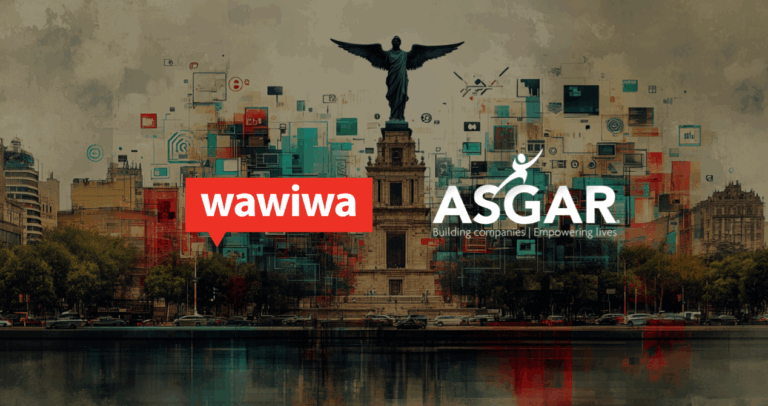When AI seems to be taking over, it’s easy to feel like humans are becoming obsolete. But remember, AI didn’t just pop into existence—it was created by us, humans. This blog discusses the fascinating collaboration between human creativity and artificial intelligence, exploring how professions like data scientists, engineers, and artists have shaped AI, and how we can use this powerful technology smartly.
AI: A Collaborative Masterpiece
AI didn’t magically appear; it was the result of tireless effort and creativity from various professions over the years. The journey began decades ago with computer scientists and mathematicians laying the foundational algorithms. Engineers and software developers brought these concepts to life through hardware and software development. Data scientists and analysts then refined these algorithms, teaching machines to learn from vast amounts of data. Alongside them, UX/UI designers crafted intuitive interfaces, making AI tools accessible and user-friendly. Cybersecurity experts ensured that these systems remain secure and protected against threats. Digital marketers play a crucial role in promoting these innovations, ensuring that AI platforms reach a global audience. While we can’t cover every profession involved or go into great detail, it’s clear that AI’s creation is a massive team effort across different fields that created and are still creating the transformative technologies we increasingly use.
Even with the sophisticated capabilities of AI, human oversight remains essential. Take platforms like ChatGPT, for example. While they can generate entire articles, it’s up to us to review and ensure accuracy. Just recently, in 2023, for example, a lawyer used ChatGPT in court, only to find that it had cited fake cases. AI can augment our abilities, but it requires our guidance to function effectively and responsibly. Humans are the architects and the gatekeepers, ensuring that AI operates within the bounds of truth and ethics.
For instance, with MidJourney, a generative AI tool that creates images based on your textual descriptions, you need to have a clear idea of what you want to generate. You must think about the message you want to convey, describe it precisely, and then MidJourney will create the desired image. You might simply type “futuristic cityscape,” and MidJourney will generate it, drawing from patterns and designs based on what other humans have generated. However, if you have something more specific in mind, such as green rabbits flying in the cityscape, you need to describe it, and MidJourney will bring your unique vision to life. Additionally, if you want the image to align with your brand style, you should specify details like colors, styles, and other elements to ensure it meets your requirements. The image is not always perfect, so you may need to try different prompts. If something is off, you can use the “vary region” feature to get alternatives and choose the one you prefer the most. Similarly, with ChatGPT, you need to know the context and purpose of the content you want it to generate. You provide the prompts and guidelines, and it produces the text, but you still have to review and edit it for accuracy and relevance.
Looking back, technological advancements like the Internet transformed our lives, creating new opportunities and challenges. Before the Internet, we couldn’t imagine interacting with people globally without physical presence. Many jobs became obsolete, but countless new professions emerged. Our lives became easier and more connected, not because we were replaced, but because we adapted and evolved. Similarly, AI will make certain professions redundant while giving rise to new ones. It’s an evolution! By embracing this change and leveraging AI smartly, we can shape a future where technology enhances our capabilities, creating a mutually beneficial relationship between human creativity and artificial intelligence.
Using AI to Transform Your Job
Incorporating AI into your daily work routine can be a game-changer, providing opportunities to learn, grow, and become more efficient in your job. By leveraging AI tools, you can gain insights and knowledge that were previously out of reach. However, if you simply use AI to generate content for you and send it to your clients without further thought, it’s time to rethink this approach. AI can certainly make tasks easier, but if not used wisely, it can also make you stupid. Instead, use AI to enhance your skills: learn from it, ask it more and more questions, think critically, and always evaluate the outputs it provides.
Your typical 9-to-5 job can look vastly different with AI integration. Tasks that used to take weeks can now be completed in just a few hours. AI can handle repetitive and time-consuming tasks, freeing up your time for more strategic and creative work. This shift allows you to focus on what matters and bring more value to your role.
AI can help you tackle those important tasks you’ve been procrastinating on (we all have them) with newfound creativity and efficiency. Imagine having an AI-powered tool as your brainstorming buddy, always ready with fresh ideas and unique perspectives. In addition, it’s also your best employee, creating stuff without getting tired. Well, you don’t have to imagine, you’re probably experiencing it already. Need help with project management? AI’s got your back, offering smart recommendations and streamlining workflows like a pro. With AI, you can solve complex problems with innovative solutions, making you look like a genius.
The Evolution of Jobs in the Age of AI
AI is undoubtedly changing the job landscape, replacing some roles while transforming others and creating entirely new professions. For instance, traditional data entry jobs have been largely replaced by AI automation, which can process and manage data far more efficiently. Similarly, roles such as travel agents and bank tellers have seen a decline due to digital booking systems and online banking solutions. These advancements have streamlined processes, reducing the need for manual intervention and allowing businesses to operate more efficiently.
Content writers have seen their roles transformed by AI. To a large extent AI is replacing writers, and for those who kept their jobs AI tools like ChatGPT have become valuable assistants, generating ideas, drafting content, and even editing text. This collaboration allows writers to focus more on creativity and proofing tasks rather than actual writing.
Entirely new professions have emerged in the wake of AI advancements. Machine learning engineers, for instance, are in high demand to develop and fine-tune AI algorithms. AI ethicists are also becoming increasingly important, ensuring that AI systems are designed and used in ways that are ethical and fair. AI leaders are implementing AI technology in organizations and some claim that prompt engineering is also a job role, while others believe it is a necessary skill for every profession. These new roles require specialized knowledge and skills, reflecting the evolving nature of the job market. As AI continues to evolve, it’s clear that while some jobs may disappear, many more will be transformed or created.
Exploring Wawiwa’s Cutting-Edge Programs
Wawiwa is a global tech education provider offering reskilling and upskilling programs to various tech and business jobs. Our programs span from Full-Stack Development, to Data Science and Analysis, to UX/UI Design and others. We have integrated AI modules into all our programs, ensuring you gain cutting-edge skills that meet the demands of the industry.
We pride ourselves on offering the very professions that have made AI a reality. Who knows, you might even be part of creating the next AI tool that everyone talks about!
As we’ve discussed, AI is not just about replacing jobs but also about creating new opportunities and tasks. For instance, at Wawiwa, we provide a specialized workshop on how to integrate Generative AI into your marketing job—a must-know for marketers nowadays. The skills you’ll gain from this workshop are cutting-edge and ready to be applied directly to your marketing role.
Another workshop we offer is the AI Awareness for Organizations. Unlike generic AI courses, this workshop includes the crafting of a high-level work plan for AI implementation, tailored to your organization’s business needs.
Additionally, our Generative AI for Product Managers offers participants the opportunity to transition from traditional product management practices to AI-driven methodologies.
Finally, our AI programming courses in Practical Machine Learning with Python, Machine Learning for Programmers, and Generative AI for Developers provide hands-on-experience, and knowledge to help you use the new skills and techniques you learn into your current job, enhancing your ability to tackle complex problems and drive innovation within your role.
Imagine the potential changes within your own company. What new initiative could you suggest to embrace AI and drive innovation? The possibilities are endless!



